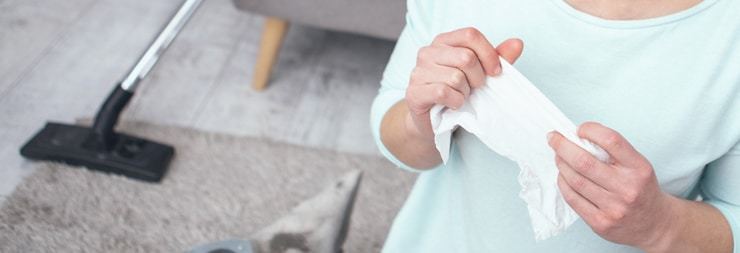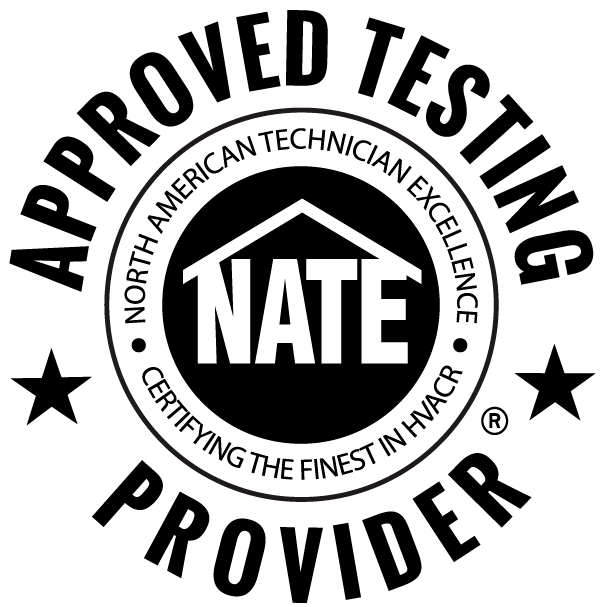As a homeowner, your home is something you take great pride in. After all, it’s a safe place for you and your family to relax, spend time together, and make memories. And while you may think you’ve been doing everything you can to ensure your home is clean and safe, you may have forgotten about one thing: indoor air quality testing. But, what exactly is indoor air quality testing? Why is it important? And, how is it performed?
How is Indoor Air Quality Testing Performed?
Every homeowner can benefit from having their home’s air quality tested. If you want to do so, hiring a professional is a good first step. Your technician will be able to perform a complete test of your air, including testing for VOCs, mold, allergens, carbon monoxide, and more.
3 Invisible Odors to Test for
1. Volatile Organic Compounds (VOCs)
Have you recently installed some new furniture and noticed a chemical odor that lingers around for a few days? That chemical smell is the VOCs off-gassing from the material. While the strong chemical odor may start to subside after a few days, off-gassing of VOCs can last anywhere from a few months to decades. VOCs are found in countless household items — cleaners, paint, couches, carpet, and more — all of which can harm your home’s air quality, and ultimately, your family’s health. Fortunately, indoor air quality testing will enable you to monitor the total volatile organic compound levels in your home.
How to Remove VOCs
The most effective way to keep the level of VOCs low is to avoid them by using natural products whenever possible. If high levels of VOCs are found in your home, you can resolve this by taking the following measures:
- Occasionally opening your windows
- Investing in a chemical VOC air purifier
- Periodically running your bathroom and kitchen exhaust fans
- Decorating your home with air purifying house plants
- Scheduling regular AC maintenance
2. Carbon Monoxide
Carbon monoxide is a tasteless, colorless, odorless gas, commonly found in older furnaces, HVAC systems, and gas water heaters that are not properly ventilated. If released, carbon monoxide is a major, fatal threat to your family. If you or your family experience sudden flu-like symptoms — carbon monoxide poisoning could be the cause. If so, your family and pets will need to evacuate the home immediately. If your family has been exposed to carbon monoxide, seek immediate emergency medical attention, and notify your local fire department. Indoor air quality testing will be performed to detect levels of carbon monoxide in the air which will determine when your home is safe to enter.
How to Prevent Carbon Monoxide Poisoning
While carbon monoxide poisoning is a seriously scary threat, the risk of it occurring can be greatly reduced. To keep your family safe, ensure your household is taking the following precautions:
- Educate your family about the risks of carbon monoxide poisoning
- Install carbon monoxide detectors
- Keep your air vents open and unobstructed at all times
- Do not run engines in closed areas (ex: running a car in a garage)
- Schedule regular AC maintenance
Related: The Dangers of Closing Air Vents
3. Mold
Mold is a nasty fungus that thrives in moisture, and if it’s growing in your home, it can wreak havoc on your home and health. If your home’s HVAC system is not properly ventilated, your risk of a mold problem increases. While you can usually detect mold by its musty odor — sometimes a mold problem can remain undetected for long periods of time — which can result in serious damage to your home and health. Indoor air quality testing will be able to detect mold, even if there are no obvious signs of it.
How to Prevent Mold
Mold is a looming threat for all homeowners. But, there are steps you can take toward preventing it.
- Periodically run your exhaust fans
- Ensure your home is properly ventilated
- Regularly clean your home
- Dry wet areas immediately
- Invest in a dehumidifier
- Schedule regular AC maintenance
Indoor Air Quality Testing Services in Brevard County
If you need your home’s indoor air quality tested, Colman Heating & Air is here to help. We will test your home’s air quality and ensure it is safe for you and your family. To schedule a service appointment, please call us.
24-HR Emergency Service: (321) 269-4565







Leave a Reply